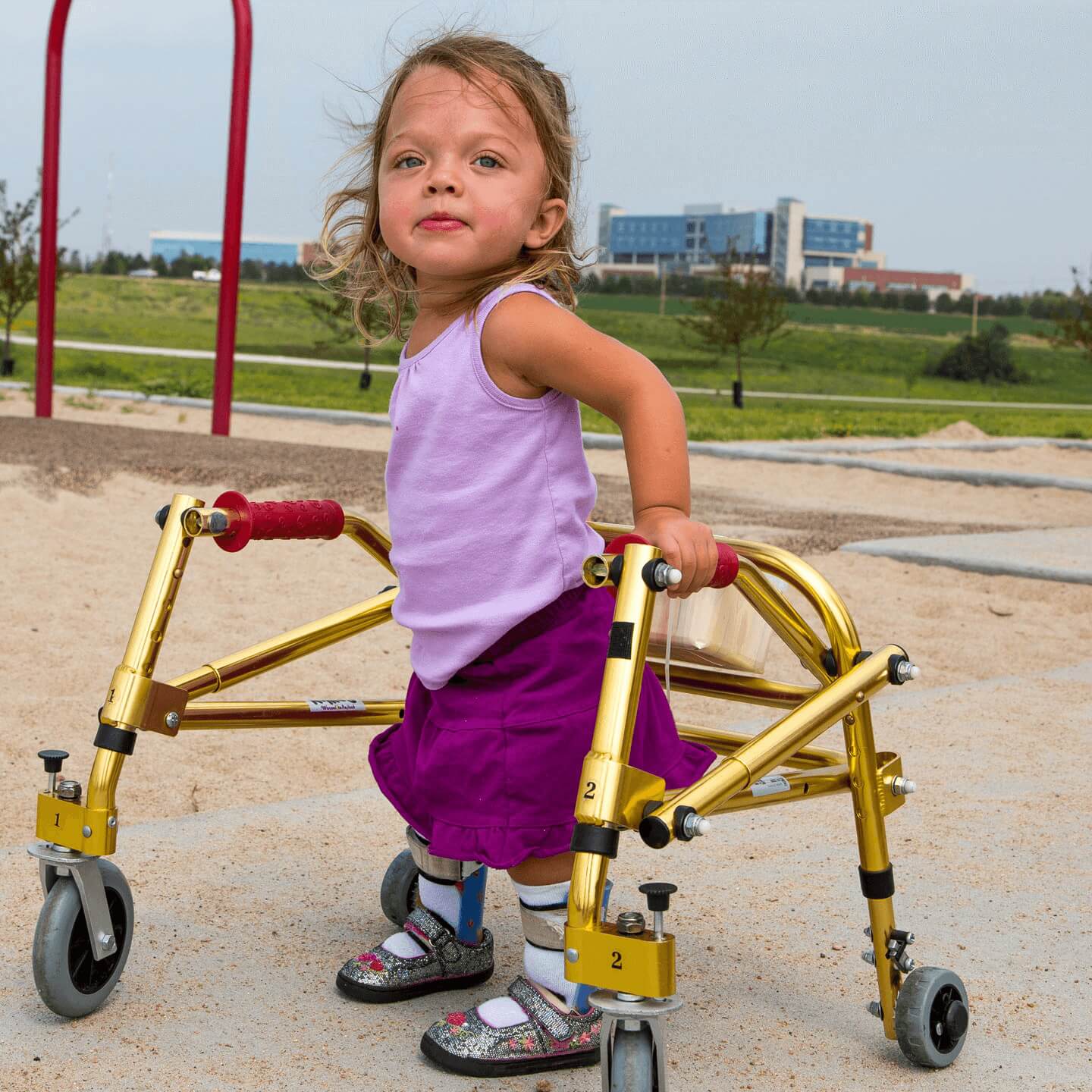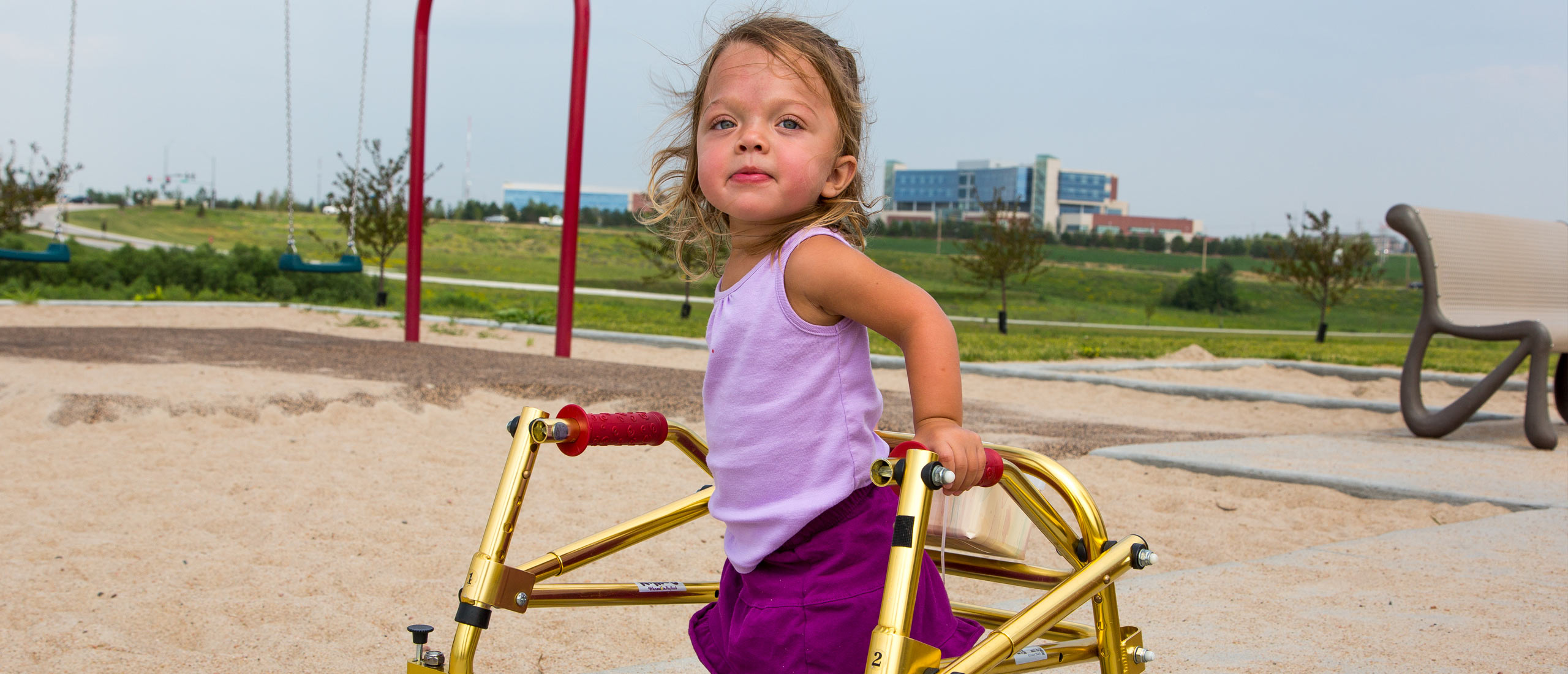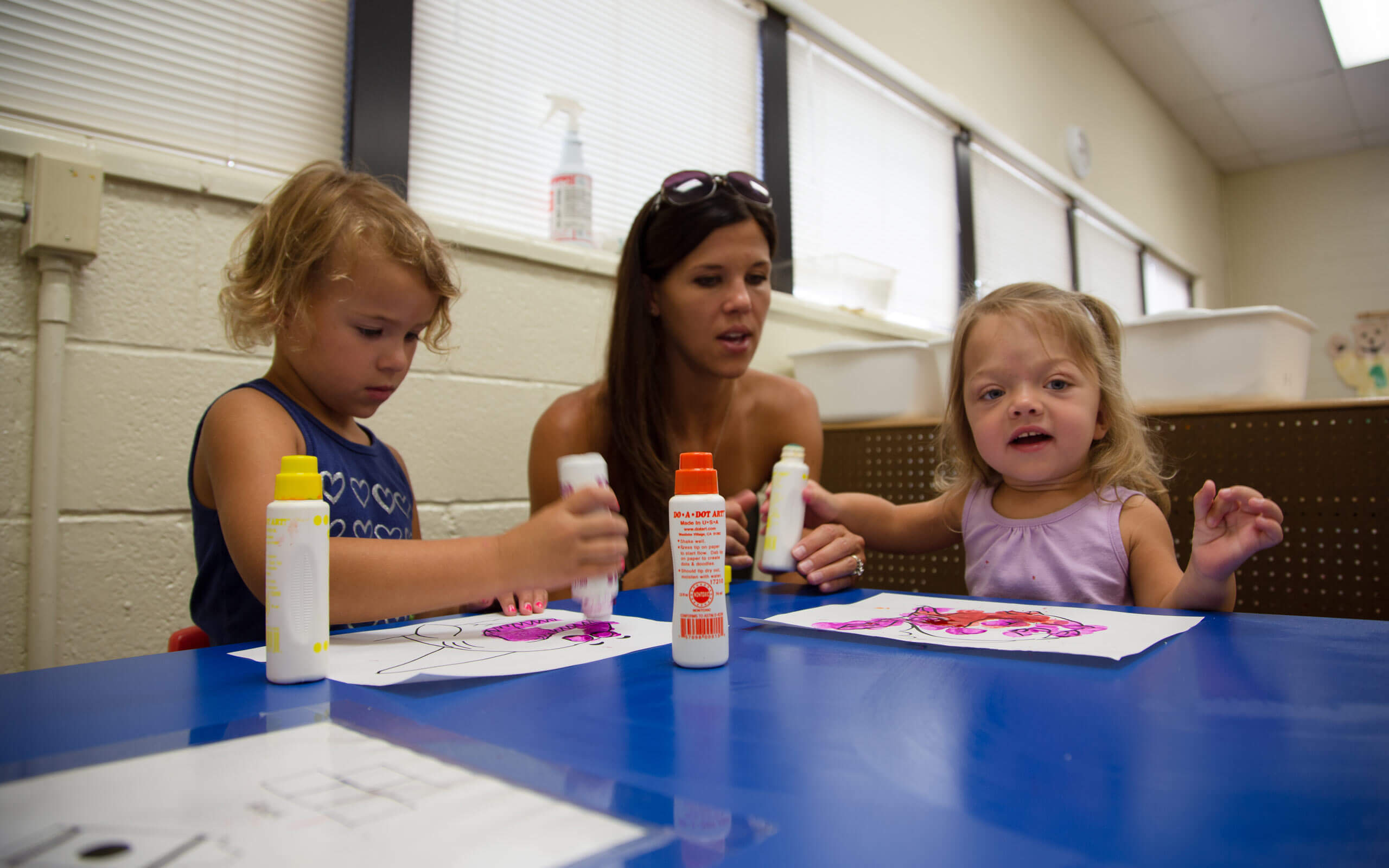
Meet Evie
Diagnosed with HPP at 2 weeks old

When an ultrasound revealed that Evie had extremely fragile and transparent bones, doctors told expectant parents John and Lindsey that it was not likely their baby girl would live long after birth. The hours that Evie’s parents expected to have with her turned into weeks, but the baby was gripped by seizures.

Then, a routine blood draw revealed that Evie had low alkaline phosphatase (ALP), which enabled them to diagnose her with hypophosphatasia (HPP)—a rare, genetic, life-threatening metabolic condition that prevents minerals such as calcium and phosphate from being properly deposited in bones.1-3
Her parents were told that Evie’s case was very severe and that there were no approved or effective treatment options. At 3 months old, Evie was enrolled in a clinical trial to receive an investigational medicine, and she continues to receive treatment today.
Evie is, as her mother says, “writing the book on where we go from here. Her story gives other parents with special needs kids hope that they can be okay, and things can be good.”
References:
- Rockman-Greenberg C. Hypophosphatasia. Pediatr Endocrinol Rev. 2013;10(suppl 2):380-388.
- Fraser D. Hypophosphatasia. Am J Med. 1957;22(5):730-746.
- Whyte MP, Greenberg CR, Salman N, et al. Enzyme-replacement therapy in life-threatening hypophosphatasia. N Engl J Med. 2012;366(10):904-913.



